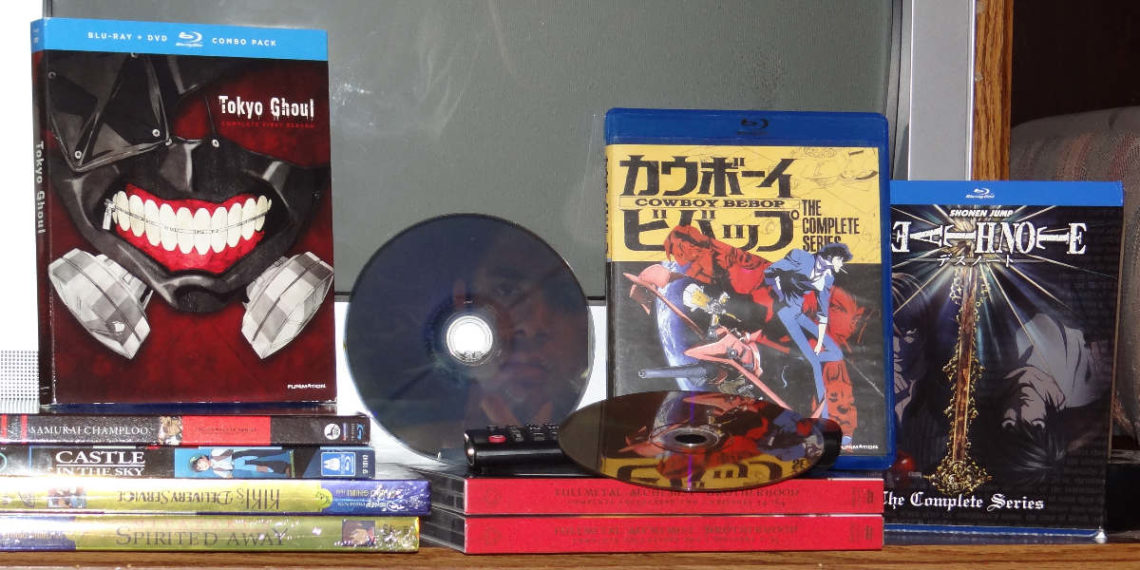
My Experience Watching Anime Later in Life (And Why It Was Worth It)
I began watching anime a little later than most. It was a hobby I appreciated from afar, but never worked up the confidence to partake in until age 23.
And boy am I glad I got into it.
There were a lot of reasons for the delay of watching anime on my part. I think the biggest thing that held me back was because of how weird anime seemed.
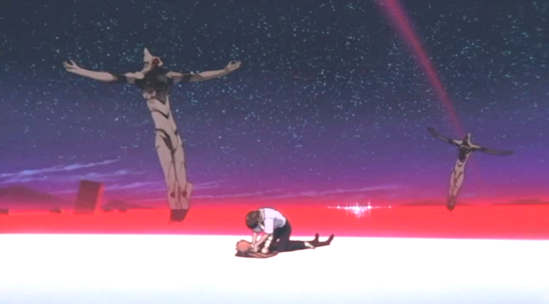
The hyperbolic emotions.
The unique animation.
The overabundance of subtitles.
It was a rather strange confluence of elements that caused me to keep my distance. At least for a while.
You would think, as someone who lived in Japan for seven years of his life, that I of all people would dig anime and have a rich, illustrious career with the media form. But nope, I somehow sidestepped it all. That is, until one fateful day when I stumbled across a little-known manga series known as Attack on Titan.
It was in a Japanese bookstore in Seattle. I was visiting with an old friend who I grew up with during my tenure as a navy brat in Japan. We were in an Oriental part of the city, and decided to take a peek at the large array of literature in the store. There were plenty of literary genres to be found, but the one section of the store that attracted my attention was the manga area.
As a Marvel fanatic, I am no stranger to comic books. The artwork of manga appealed to me. I knew of its existence, but never bothered to flip through a book until I held issue #1 of Attack on Titan in that bookstore. The panels were rife with zany action and fascinating dialogue. I bought it and the very first Death Note graphic novel at my buddy’s recommendation.
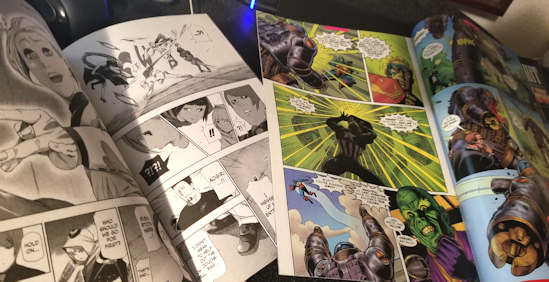
What began as simple curiosity quickly snowballed into an obsession.
If you have read my post on tangible video games, then you are fully aware of my infatuation with the physical. I love the visceral feeling of holding things and experiencing it in three dimensions, rather than on a screen. Manga checked that box. It was very much a familiar place for me, having read many comic books in the past. Two manga books became fifty, and eventually I was reading multiple different series at once, devouring story-lines that had previously passed me by.
A year or so later (and after a good amount of $ was sunk into these Japanese graphic novels), I was perusing Netflix’s “popular” section. There it was: Attack on Titan. I had read into nearly twenty AOT manga books by this point, and was quite familiar with the overarching narrative. And here was its animated counterpart, but a click away for me to embark on this cinematic journey.
I hesitated. Did I really want to get into the animated series?
A lot of concerns reared their ugly heads. Firstly, diving into a new show is always a bit of a commitment for me. Even if the overall quality is somewhat lackluster, I will still watch until the end just to see the plot come full circle.
Firstly, diving into a new show is always a bit of a commitment for me. Even if the overall quality is somewhat lackluster, I will still watch until the end just to see the plot come full circle.
Secondly, I was a little leery of invoking flak from those in my circle of influence who tended to bash anime. And yes, at this point in my pop culture career, I had my fair share of diverse interests that could draw ire at any given moment. But still. It was just another piece of coal to add to the fire.
Lastly, the question did arise: “What if the anime isn’t as good as the manga?” Believe me: In the past, I did assume a pretty critical mindset if movies or shows don’t closely adhere to the source material. Since then, I’ve accepted that the two forms of media are markedly different, and will very seldom share all narrative aspects. Nonetheless, I still recollected various other instances where I was burned by a poor TV/movie adaption of a book, which caused me to balk at the AOT cover art on the Netflix app.

I’ll put it on the list.”
You can probably surmise the rest. I figured it couldn’t hurt to just see one episode, and make my own judgment call on whether to take the anime plunge or not. Before I knew it, I had wrapped up the season, and began hungrily investigating other series that had previously passed me by in my former years. Death Note. Full Metal Alchemist. One Punch Man. I had unlocked a vast new world of content, and I was in for the long haul.
Correction: I’m still in for the long haul. I feel like every anime aficionado I talk to has a whole new treasure trove of shows that I still have yet to experience, and the list of recommendations has grown to a nearly unmanageable length.
That’s a good problem to have.
But as I check off each show (and add 3 more for every one I check off), the thought occurred to me: Why do I enjoy watching anime so much, even as someone who came late to the party in his mid-twenties?
The Stories in Anime
Like any other show or movie, anime at its core is a storytelling vehicle.
It contains a narrative structure which features recurring characters, building towards some sort of conclusion. But one of the main reasons I enjoy this particular segment of TV is because of how unique the narrative tends to be.
As one who delves into a variety of media forms — whether it’s video games, comic books, or novellas — I’m finding it increasingly difficult to find a truly original story that I haven’t already witnessed before in some capacity.
This, of course, opens up a huge can of worms, and I’m sure many will find fault with this seemingly pretentious statement.
On a broad scale, it is tough to create a 100% original narrative that hasn’t already been done. I understand that. In fact, some of the my favorite forms of media have taken bits and pieces from preexisting stories, and enhanced them to a degree that pulls me in.
What I’m more arguing for is the elements of a narrative: specific story beats, plot twists, familiar tropes, etc. Elements like these are very often turned on their head when it comes to the world of traditional Japanese animation. While there are invariably going to be some elements of the show that I am familiar with, anime (at least in the majority of those I’ve seen) has managed to change the status quo of television time and time again.
The aforementioned Attack on Titan features a group of intrepid warriors seeking to defend humanity from larger-than-life humanoid beings that threaten to expunge the human race from existence.
One Punch Man is about the most powerful being in the universe who turns out to be some random schmo who has…misplaced priorities.
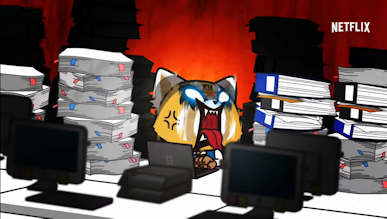
Aggretsuko is based in a world highlighting anthropomorphic animals living as humans do – and the protagonist is a repressed accountant (who is also a red panda) that spends her nights screaming death metal lyrics in karaoke bars.
I could go on and on. I find that the fundamental story-lines in anime are so decidedly unique, it keeps me drawn in and engaged more often than not. Unique narratives are something I appreciate, and anime delivers these types of stories in spades.
The Art of Anime
Japanese animation is a curious thing.
It’s not like traditional American animation, which errs on the side of fluid movement. Rather, anime tends to concentrate more on various cinematic techniques, such as forced perspective and intense camera pans. What results is a very different spectacle than one Westerners are accustomed to seeing — a medium that places its focus on heightened emotions and abrupt shifts in tone.
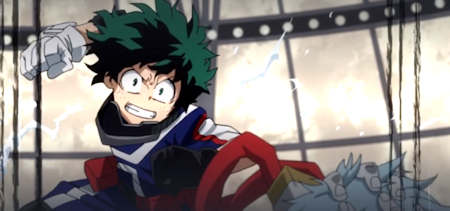
In addition to the fascinating artistic effects that are implemented in anime is the actual aesthetic qualities that are imbued within each individual frame. Eye-popping scenery, bright hues, and epic proportions are but a fraction of the characteristics that can be seen in many anime shows.
The visual pizzazz is something that never gets old for me.
One subset of anime that falls under the category of “art,” is the soundtrack. Anyone who’s seen a Studio Ghibli film can rightfully attest to this: the music can be simply amazing and transportive. Along the same lines, a lot of anime shows contain a very distinctive song for their intros. The main theme for the first season of Tokyo Ghoul was on constant repeat for weeks in my brain.
Bottom line? Watching anime is just a cool all-around experience for those involved.
Anime’s Adherence to Source Material
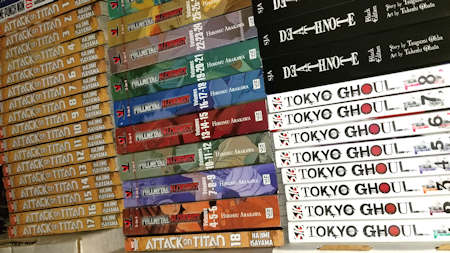
A concern of mine prior to delving into the realm of anime was how much it lined up with its source of inspiration: the manga.
From what I can gather, few adaptions exist that pay better homage to their source material than does anime to manga. Time and again, the shows are very close to their graphic novel counterparts — sometimes down to the panel. After reading the complete Death Note manga series, I immediately took to binging the anime series on Netflix.
And I wasn’t disappointed.
The show was so freaking close both narratively and visually to what I recalled seeing in the manga. The Netflix movie? A completely different story. But I digress.
It’s a very common debate to hear in different segments of nerd and geek culture: is the on-screen version as good as the book? For example: while most agree that Lord of the Rings is a faithful adaption of the eponymous fantasy novels, there are those that will nitpick key elements and express disdain when not everything lines up perfectly in the transition from book to film. I’ve been there. For me, it’s Marvel films. If Baron Zemo doesn’t wear his iconic sock mask in Civil War, I will make a stink about it. We defend what we love.
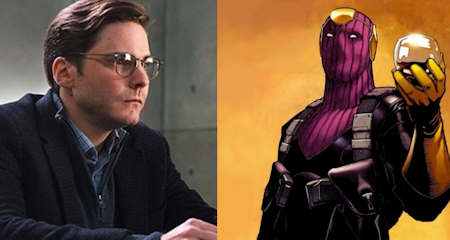
Yet, this issue doesn’t quite seem to permeate the anime world as much as other book adaptions I’ve seen. Admittedly, what I’ve witnessed is but a mere fraction of the aggregate total of manga and anime in existence. But from what little I’ve read in manga and watched in anime (sometimes experiencing them back to back), the two seem to correlate eerily well.
And with limited time these days to read both the manga and watch the anime, I can rest assured that the anime series is likely a faithful adaption of its source material if I’m unable to read the latter.
Anime & Pop Culture
For most, it’s nice to be in the loop on current events and popular trends. With today’s vapid social media culture, being informed on virtually any topic is but a mere click or swipe away.
But it’s an altogether different experience than participating in the hobby yourself. I can talk at length about what I’ve read online about Tokyo, or seen on a postcard. That will not, however, hold a candle to what I could speak about had I been in the city for myself and witnessed the metropolis firsthand.
Watching anime is a classic example of this for me. Sure, I was tangentially familiar with a lot of the top anime such as Dragon Ball Z. But I couldn’t speak to anything beyond a cursory level. Thus, a lot of references went over my head, as well as attempted conversations with those who were clearly into the hobby.
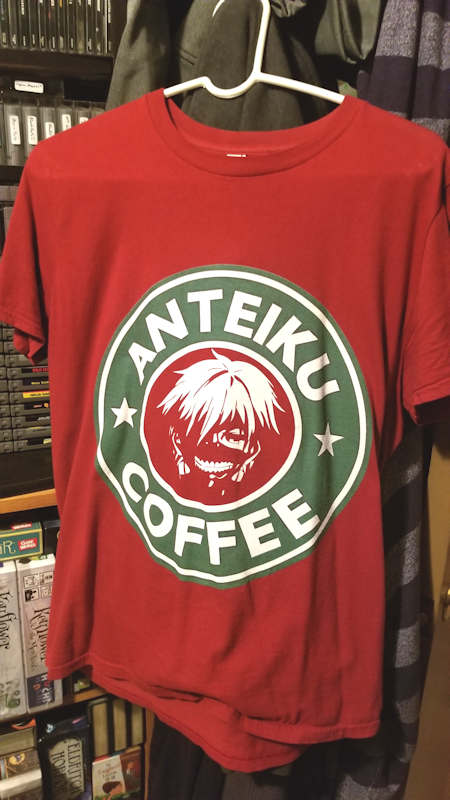
It was like being locked from an inaccessible area of a video game — I didn’t have the stats or skill set necessary to confidently walk into that area.
Obviously, this problem of ignorance can apply to pretty much any other category of hobbies. We know what we know, and will naturally gravitate towards those who share knowledge in the same category of interests. Like with anything else, once I began my foray into the rabbit hole of anime, I found myself becoming more privy to all things related to the media form. The context of many memes began to make sense, and lurking through Reddit comments that oftentimes referenced anime was much more rewarding.
As I began to wear apparel to reflect my newfound love for anime, bystanders would take notice and strike up conversation. This would otherwise not happen if it weren’t for my Anteiku Coffee t-shirt. To take it a step further, I’d venture to say some great friendships were formed and enhanced by a shared interest in anime.
Again, I acknowledge this specific reasoning for liking anime is a bit generalized, and can apply to a wide swath of other fields. Broadening one’s horizon and becoming interested in a topic opens doors to previously locked conversations, and in some cases, relationships.
And as for me and my late discovery of watching anime, this core tenet certainly rings true.
The Weirdness of Anime
Ironically, the very thing that repulsed me about watching anime turned out to be the very thing that draws me to it.
The weirdness factor.
At a high level, anime is indeed a strange piece of the media puzzle. Primarily coming from the Eastern World, it contains elements that can sometimes strike me as odd, or perhaps altogether off-putting. Yet a lot of anime has this fun, kitschy feel to it that I also receive from other genres of film and television.
To really pin down what weird aspects I enjoy so much about watching anime is a tough call. After all, the term “weird” is very subjective. Whether it’s the overly bombastic fight sequences, the crazy voice fluctuations, or the fantastical atmospheres — I’d say “yes” to all of it.
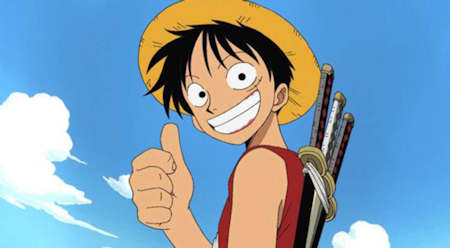
To me, anime is more than the sum of its parts.
It’s a unique embodiment of expression.
It’s an art form.
That’s why I continue to watch anime.

